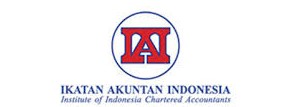Pengaruh Whistleblowing System, Bystander Effect, dan Anti-fraud Awareness terhadap Pencegahan Fraud dalam Pengelolaan Dana Desa pada Kabupaten Sijunjung
Abstract
This study intends to examine the impact of the bystander effect, anti-fraud awareness, and the whistleblowing system on managing village money in Sijunjung Regency and preventing fraud. This study is quantitative in nature. The Slovin formula is used to determine how many sample members there should be. A total of 117 respondents from 39 villages in the Sijunjung district made up the study's sample. The hypothesis in this study was tested using multiple linear regression analysis with SPSS version 20. The results showed that the whistleblowing system and anti-fraud awareness had a positive effect on fraud prevention, while the bystander effect had a negative effect on fraud prevention.
References
Abdullahi, R., & Mansor, N. (2018). Fraud Prevention Initiatives In The Nigerian Public Sector: Understanding The Relationship Of Fraud Incidences And The Elements Of Fraud Triangle Theory. Journal Of Financial Crime, 25(2), 527–544. Https://Doi.Org/Https://Doi.Org/10.1108/JFC-02-2015-0008
Ajzen, I. (1991). The Theory Of Planned Behavior. Organizational Behavior And Human Decision Process, 50, 79–211.
Akhyaar, K. Et Al. (2022). Pengaruh Kepatuhan Pelaporan Keuangan, Sistem Pengendalian Internal Dan Whistleblowing System Terhadap Pencegahan Fraud Pengelolaan Dana Desa. Jurnal KRISNA:Kumpulan Riset Akuntansi, 13(2), 202–217.
Asiah, N., & Setyorini, D. (2017). Pengaruh Bystander Effect Dan Whistleblowing Terhadap Terjadinya Kecurangan Laporan Keuangan. Jurnal Nominal RISET AKUNTANSI DAN MANAJEMEN, VI(1), 109–123.
Brink, A. Et Al. (2015). Reporting Fraud: An Examination Of The Bystander Effect And Evidence Strength. Accounting Behavioral Research.
Chairi, N. Et Al. (2022). Kompetensi , Moralitas Dan Sistem Whistleblowing Dalam Pencegahan Fraud : Studi Empiris Pada Organisasi Pemerintah Indonesia. 22(1), 119–142.
Cressey, D. R. (1953). Other People’s Money; A Study Of The Social Psychology Of Embezzlement. Free Press.
Dewi, K. Y. D. Et Al. (2018). Pengaruh Bystander Effect, Whistleblowing, Asimetri Informasi Dan Religiusitas Terhadap Kecenderungan Kecurangan Pada Badan Usaha Milik Desa (Bumdes) Di Kecamatan Busungbiu. JIMAT (Jurnal Ilmiah Mahasiswa Akuntansi), 9(2), 130–147.
Gao, J. Et Al. (2014). Whistleblowing Intentions Of Lower-Level Employees : The Effect Of Reporting Channel , Bystanders , And Wrongdoer Power Status. J Bus Ethics. Https://Doi.Org/10.1007/S10551-013-2008-4
Hoffman, W. M., & Robert, M. E. (2009). A Business Ethics Theory Of Whistleblowing. In Journal Of Business And Environmental Ethics. Bentley Universiy. Waltham MA.
Ishak, P., & Fitrianti. (2022). Pengaruh Bystander Effect , Financial Attitude Dan Modal Sosial Terhadap Upaya Pencegahan Fraud Pengelolaan BUMDES. Al-Buhuts, 18(01), 102–120.
Kemenkeu RI. (2019). Buku Pintar Dana Desa.
Miceli, M. P., & Near, J. P. (1984). The Relationships Among Beliefs, Organizational Position, And Whistle-Blowing Status: A Discriminant Analysis. The Academy Of Management Journal, 27(4), 687–705.
Mohammad, D. (2018). Tindak Pidana Korupsi Dalam Pengelolaan Keuangan Desa. IAI Wilayah JATIM ARTIKEL.
Noorfarhana, W. A. L. Et Al. (2021). The Influence Of Fraud Awareness On Fraud Prevention Mechanisms In The Federal Ministries In Malaysia. Asia-Pacific Management Accounting Journal, 16(3).
Nuryatno, M., & Wulandari, D. N. (2018). Pengaruh Pengendalian Internal, Kesadaran Anti-Fraud, Integritas, Independensi, Dan Profesionalisme Terhadap Pencegahan Kecurangan. Journal Riset Akuntansi, 4(2), 117–125.
Okafor, O. N. Et Al. (2020). Deployment Of Whistleblowing As An Accountability Mechanism To Curb Corruption And Fraud In A Developing Democracy. 33(6), 1335–1366. Https://Doi.Org/10.1108/AAAJ-12-2018-3780
Paterson, A. S. Et Al. (2019). Accounting Control , Governance And Anti-Corruption Initiatives In Public Sector Organisations. The British Accounting Review, 51. Https://Doi.Org/10.1016/J.Bar.2019.100844
Puspita, L. D. Et Al. (2022). Pengaruhkompetensi Aparatur, Moralitasindividu, Budaya Organisasi, Praktik Akuntabilitas,Dan Whistleblowingterhadap Pencegahan Frauddalampengelolaan Dana Desa(Studi Empiris Pada Desa Di Kecamatanprambanan, Klaten). Jurnal Akuntansi Tri Sakti, 9(2), 327–340.
Redaksi KPPN BKT. (2021). Dana Desa: Pengertian, Sumber Dana, Penyaluran Dana, Dan Prioritasnya. In KPPN BKT. Https://Djpb.Kemenkeu.Go.Id/Kppn/Bukittinggi/Id/Data-Publikasi/Artikel.Html
Sarwono, S. (2009). Psikologi Sosial. Salemba Humanika.
Siregar, S. V., & Tenoyo, B. (2015). Fraud Awareness Survey Of Private Sector In Indonesia.
Wakhidah, A. K., & Mutmainah, K. (2021). Bystander Effect , Whistleblowing System , Internal Locus Of Control Dan Kompetensi Aparatur. 3(1), 29–39.
Widyawati, N. P. A. Et Al. (2019). Pengaruh Kompetensi Sumber Daya Manusia, Whistleblowing System, Dan Sistem Pengendalian Internal Terhadap Pencegahan Fraud Dalam Pengelolaan Dana Bumdes (Studi Empiris Pada Badan Usaha Milik Desa Di Kabupaten Buleleng). JIMAT (Jurnal Ilmiah Mahasiswa Akuntansi), 10(3), 368–379.
Yasa, I. Bagus Anom Et Al. (2022). Bystander Effect Dan Pengendalian Internal Dalam Budaya Organisasi (R. R. RERUNG (Ed.)). MEDIA SAINS INDNESIA.
Yuniarti, R. D. (2017). The Effect Of Internal Control And Anti-Fraud Awareness On Fraud Prevention ( A Survey On Inter-Governmental Organizations ). Journal Of Economics, Business, And Accountancy Ventura, 20(1), 113–124. Https://Doi.Org/10.14414/Jebav.V20i1.626
Zanzig, J. S., & Flesher, D. L. (2011). Internal Auditors Speak Out On Controlling Employee Fraud. Research On Professional Responsibility And Ethics In Accounting, 15, 225–250. Https://Doi.Org/10.1108/S1574-0765(2011)0000015011







.png)
.png)
